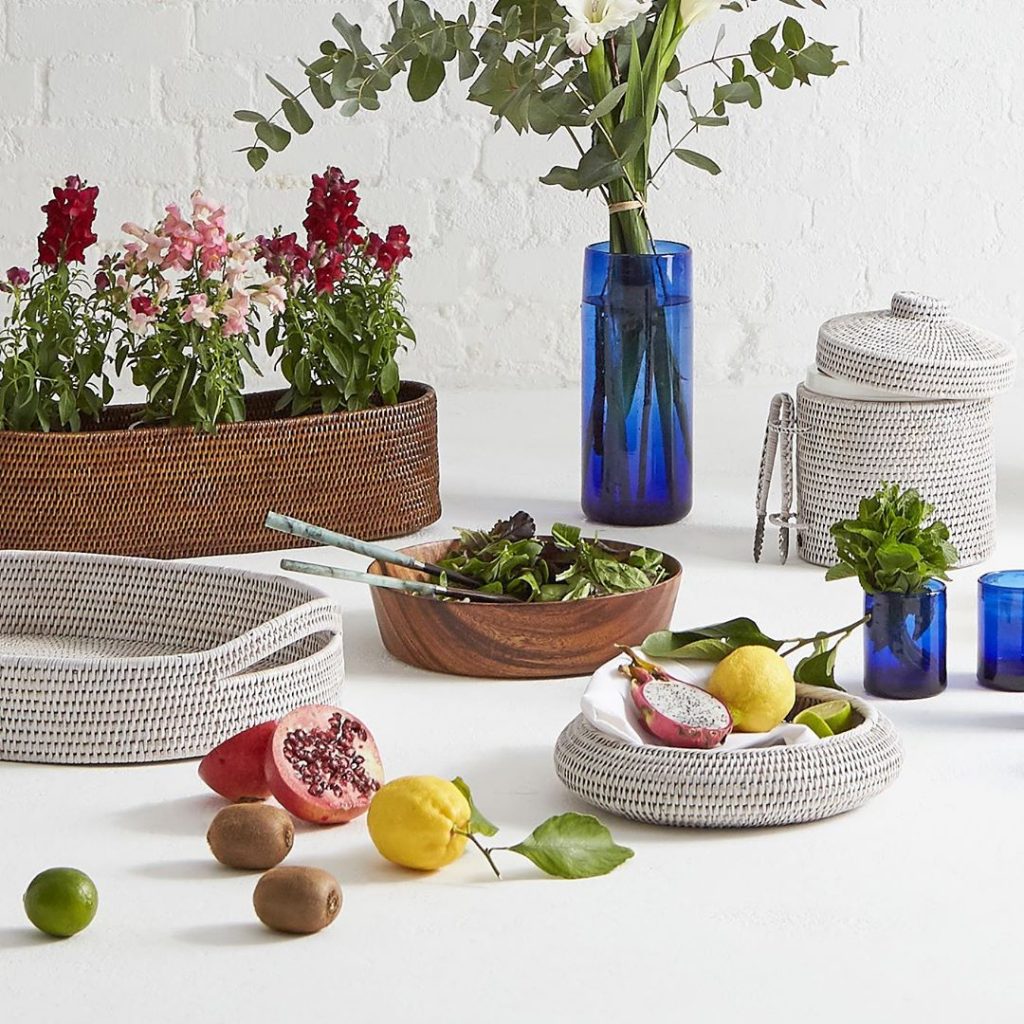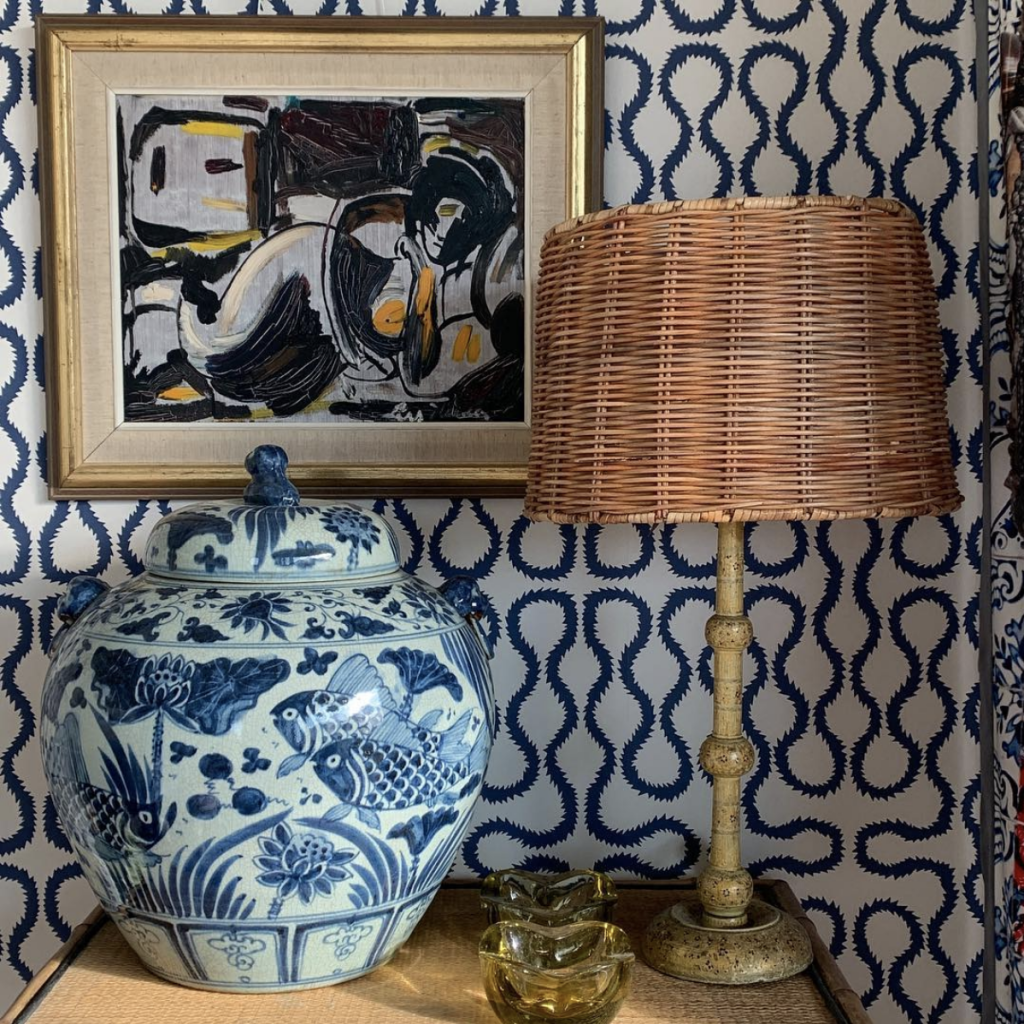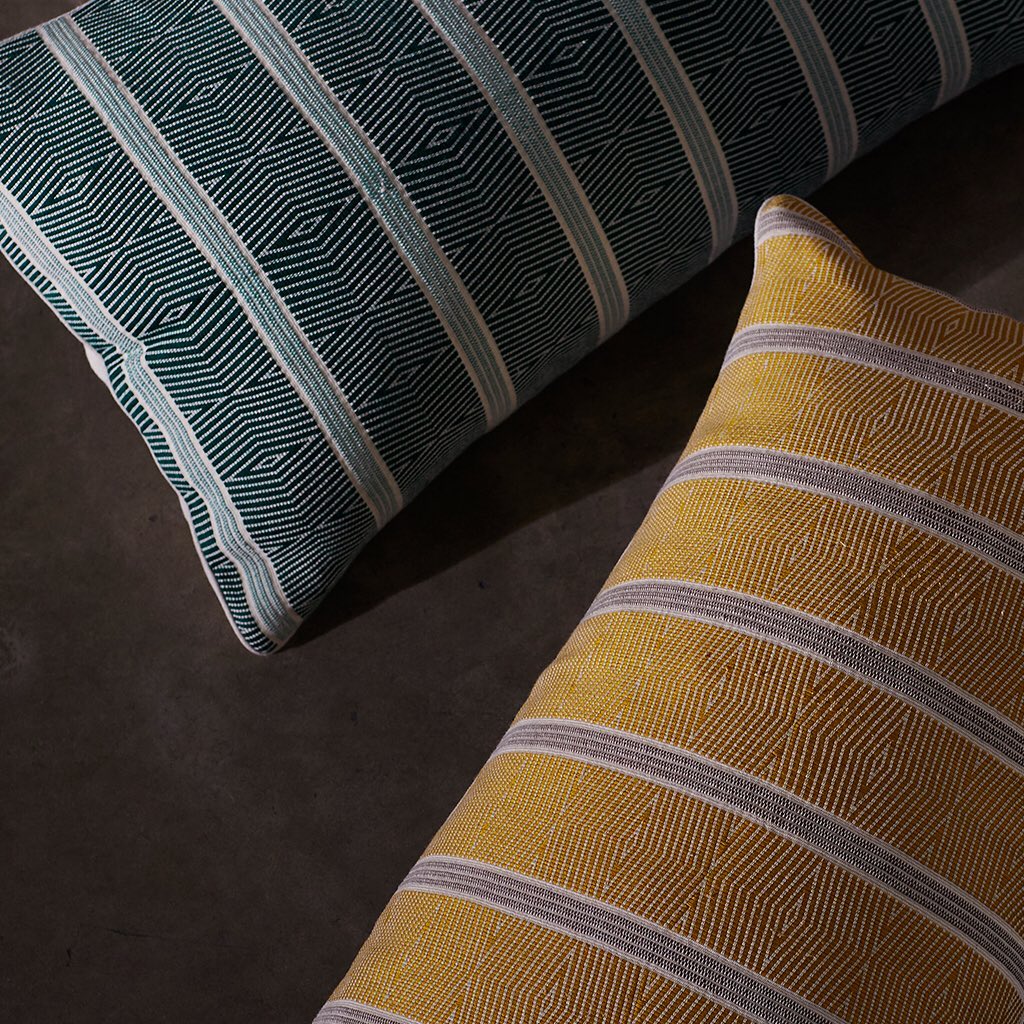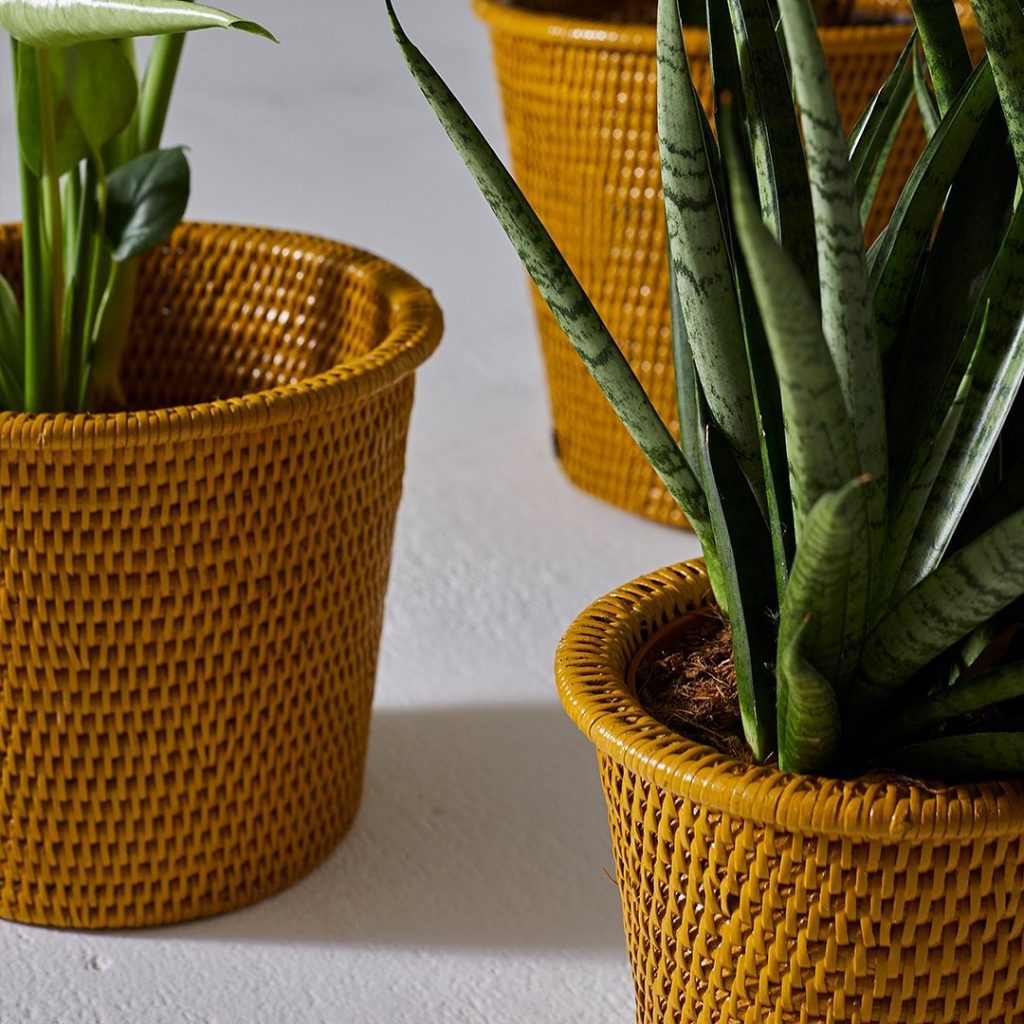While it’s easy to think of sustainability as merely the act of ‘doing things’, like when we’re walking instead of driving, or remembering to turn off the light switches, but committing to it as a lifestyle means taking a lot of things into account. An all-around awareness of our own carbon imprints is essential, as is looking to purchase environmentally friendly products for everyday life. One thing that is easy to overlook when it comes to lifestyle and home furnishing is the importance of craftsmanship traditions, ones that have gone on for centuries, respectful of their surroundings and constant despite the ever-changing times. The couple behind Kalinko are lovingly focused on this precise part of the complex sustainable design equation.

Londoners Sophie Garnier and her husband had been living in Myanmar for over a year when they decided to create Kalinko. Sophie fell in love with the beautiful craftsmanship she found while travelling around Burmese towns. She realised that incredibly talented artisans, with generations worth of knowledge, had been left behind by industrialisation decades ago, nearly forgotten in remote villages. She then took it upon herself to become a bridge between the Burmese craftspeople and British consumers, connecting both cultures in a way that would have been infinitely more challenging otherwise. The Kalinko mission is simple: bringing beautiful and traditionally made Burmese handicrafts to the European public, and particularly the British one.

The name Kalinko derives from a Burmese tribe actually named Ka-Lin-Law, also known as Mizo. They’re known within the region for their lack of gender and class discrimination, their hospitality and, of course, their unbeatable weaving skills. Just the kind of name you’d want for a brand of home and lifestyle products which puts craftsmanship first.
Kalinko has a broad selection of goods with varying prices- amongst their products, you’ll find everything from sturdy glasses, mats, baskets of all sorts, cushions, lamps, bedspreads, tables and stools. Some of the materials they use include rattan and bamboo, but the choice is quite special and sometimes surprising – they even have fabrics made from mashed banana skins!
A family-based project, it all started with a Londoner family, and they’ve made an effort to keep the brand close to home. Kalinko provides work for nearly 100 artisan families throughout Myanmar, and is a company-wide commitment in treating their people fairly. In their commitment to bringing back Burmese artisan work and expanding it beyond its country of origin, Kalinko adheres to the 10 Principles of Fair Trade. These deal with all-around fair conditions for workers, non-discrimination, transparency, environmentalism, fair trade and creating opportunities for disadvantaged producers.
The importance of craftspeople is deeply rooted into the core of Kalinko, which you can see by merely browsing their website. They have a section dedicated to their artisans, The Makers, explaining about the faces behind their products, showcasing their stories which I absolutely love.
Sustainability deals with living one’s own life in a way that makes the least negative impact, but it’s also about providing opportunities for the disenfranchised. A more sustainable world is one where every craftsperson can have their place, living a dignified and successful life. One of the things I love about Kalinko is that they’re fully grounded on the human component. They know that their artisans and their traditional, perhaps millennia-old ways to do things, are what make their products shine. As an independent and ethical brand, Kalinko is turning thoughts into action by giving a steady income to a growing number of Burmese artisans.
Every product you see on the Kalinko website starts with a study of its materials, which are reverse engineered, and translated into designs. The Garniers work closely with the artisans to best combine their new and hip designs with the most ancient ways to do things. Each piece, whether it’s a mat or a beautiful basket, is crafted sustainably, with the same techniques that have been passed along the generations for hundreds of years. Artisans knowledge is slow and careful, and the fact that each individual piece is made by hand also means every item is entirely unique. I absolutely love them.
A lot of the artisan work from Kalinko products, particularly weaved items, is actually communal work. These items are made by small-to-medium groups of women, sometimes all working in one piece, and others simply gathered around in a circle sharing stories. It’s a time-honoured tradition that’s been going on for centuries, surviving particularly in small villages in areas so remote that the nearest city is days away.
Finding brands that make an extra effort in crafting beautiful things ethically isn’t an impossible task. What’s more, as our world becomes more aware of the necessity to be kinder to our surroundings, we’ll find an increasing number of options. We’re on the path to a more humane way to interact with our Earth, and that includes a deep respect towards different peoples’ traditions and ways to create art. I’m glad I get to live in a time where talent in remote places can reach my corner of the world thanks to an effort like Kalinko’s.

